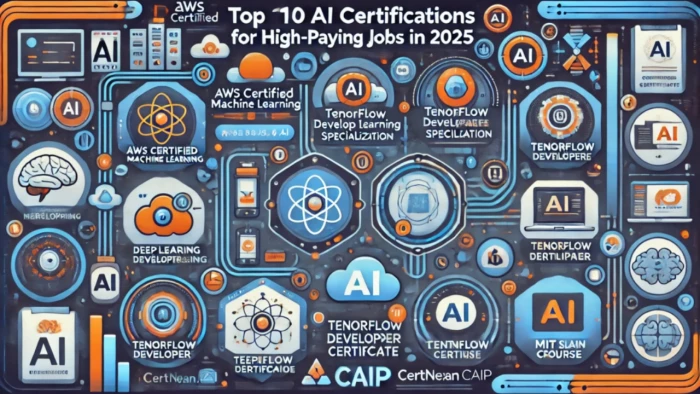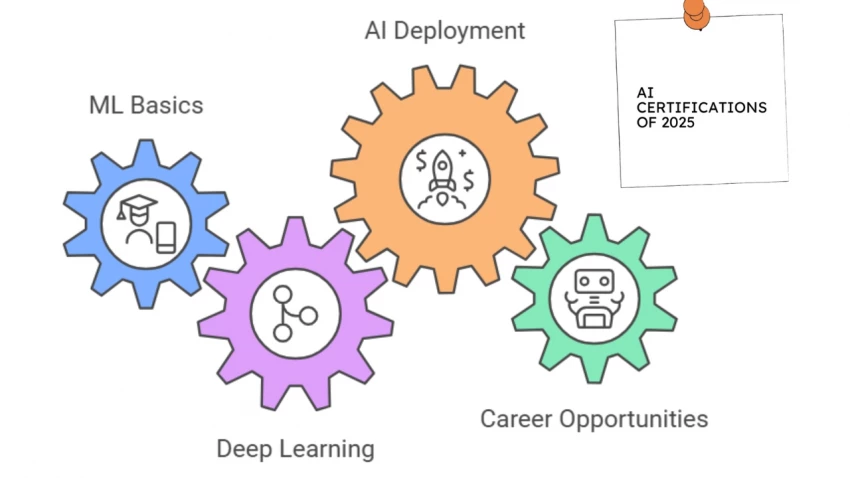

I still remember the first time I realized how fast artificial intelligence was changing the job market. I was scrolling through LinkedIn and noticed that many of the highest-paying roles listed "AI" or "machine learning" in the job description. That was the wake-up call for me. If I wanted to stay relevant, I had to invest in AI skills. Certifications became my roadmap.
By 2025, companies will not just be looking for experience; they’ll want validated proof of your expertise. Certifications offer that validation. According to Gartner, over 80% of enterprises will have AI-driven processes by 2025. That means companies need professionals who can design, implement, and manage AI systems. Without certification, breaking into the AI space will feel like climbing a mountain without gear.
I quickly learned that not all certifications are equal. Some carry more weight with recruiters. Here are the ones I’ve seen consistently mentioned by hiring managers:
Each of these certifications signals not only knowledge but also commitment. In hiring conversations, recruiters often asked me about specific certifications rather than my degree.
I noticed a pattern: companies value certifications that prove you can build, optimize, and deploy AI models. Employers want:
This mix of technical and ethical skills makes you stand out.

I made mistakes early on. I jumped into advanced certifications without building a foundation. It slowed me down. My advice: match your certification path to your current level.
Choosing wisely saves time and money.
One of the biggest motivators for me was salary growth. According to Glassdoor, AI engineers in the US earn between $120,000 and $160,000 annually. Those with specialized certifications often earn 20–25% more than uncertified peers. I’ve seen this first-hand. After adding an AWS certification, recruiters reached out to me with higher-paying opportunities almost immediately.
AI certifications aren’t just for tech experts. I’ve met marketers, finance professionals, and even teachers who transitioned into AI roles using certification programs. Certifications serve as proof that you can learn and apply new skills, even if your previous background doesn’t scream “AI expert.”
When I think about 2025, I don’t just see certifications as a piece of paper. I see them as keys to adaptability. With AI evolving rapidly, learning never stops. Certifications keep you updated with the latest frameworks, tools, and best practices. They also show employers that you’re committed to growth.
I see certifications as stepping stones. They helped me gain confidence, attract better opportunities, and position myself as a competitive candidate. By 2025, the demand for AI talent will be stronger than ever. Certifications won’t just be an option; they’ll be the currency that gets you hired.
Be the first to post comment!